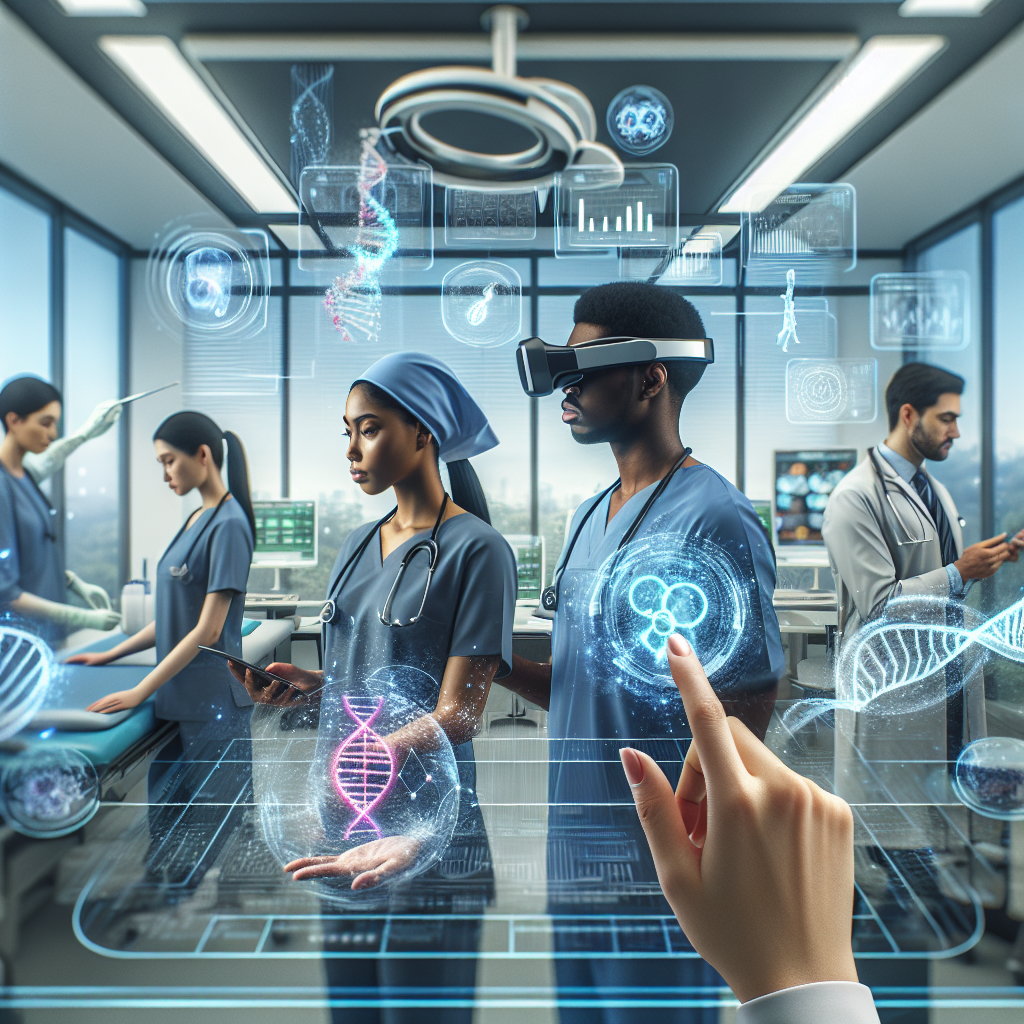Advancements in technology have revolutionized the way we live, work, and communicate. One of the most exciting technological developments in recent years is augmented reality (AR). This cutting-edge technology has the potential to transform various industries, including healthcare.
Augmented reality is a technology that superimposes digital information onto the real world, creating an immersive and interactive experience. In healthcare, AR is being used to improve diagnosis, treatment, and patient care.
One of the most significant ways AR is revolutionizing healthcare is in medical training and education. Medical students and healthcare professionals can use AR to visualize complex anatomical structures in 3D, allowing for a better understanding of the human body. This hands-on approach to learning can help improve surgical techniques and patient outcomes.
AR is also being used to assist in surgical procedures. Surgeons can use AR headsets to overlay digital images onto the patient’s body, providing real-time guidance and information during surgery. This can help reduce the margin of error and improve the accuracy of procedures.
In addition, AR is being used to enhance patient care and treatment. For example, AR can be used to create personalized treatment plans for patients based on their individual needs and medical history. Patients can also use AR applications to monitor their health, track medication adherence, and receive real-time feedback on their progress.
Another exciting application of AR in healthcare is telemedicine. With AR technology, healthcare providers can conduct virtual consultations with patients, allowing for remote diagnosis and treatment. This can be especially beneficial for patients in rural areas or those who are unable to travel to a healthcare facility.
Overall, augmented reality is revolutionizing healthcare by improving medical training and education, assisting in surgical procedures, enhancing patient care, and increasing access to healthcare services. As this technology continues to evolve, we can expect to see even more innovative applications that will revolutionize the way we approach healthcare.


Leave a Reply